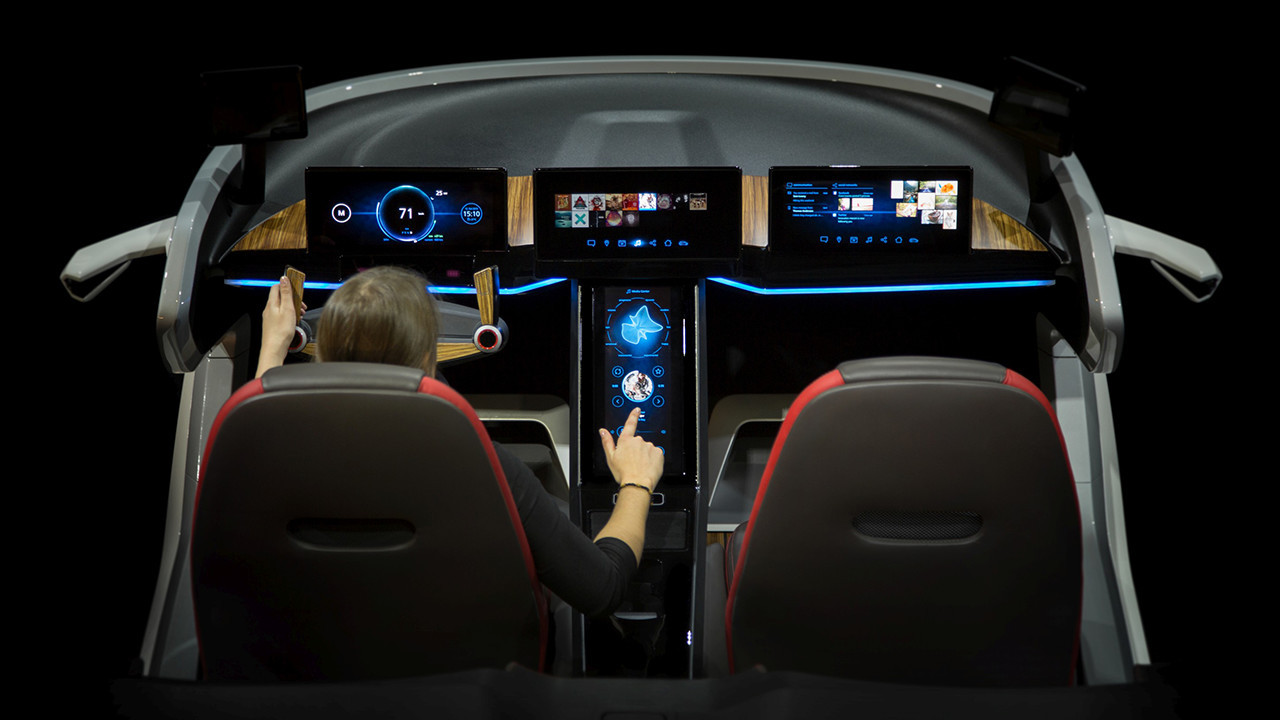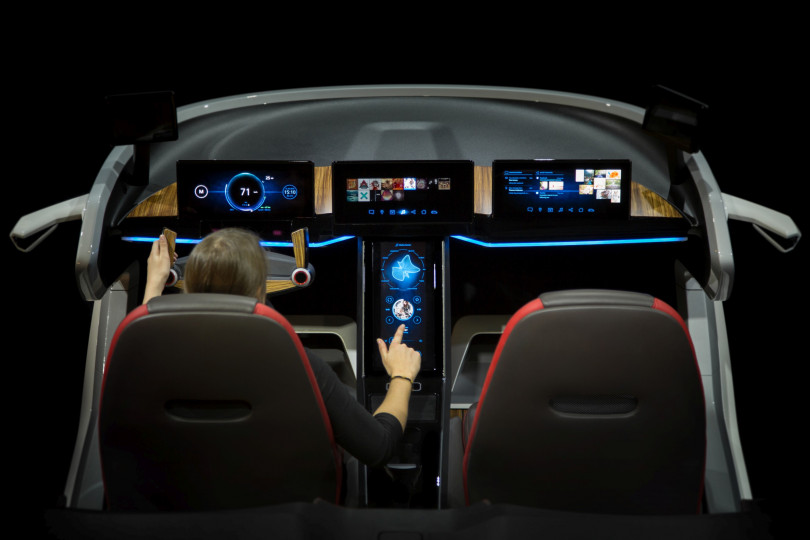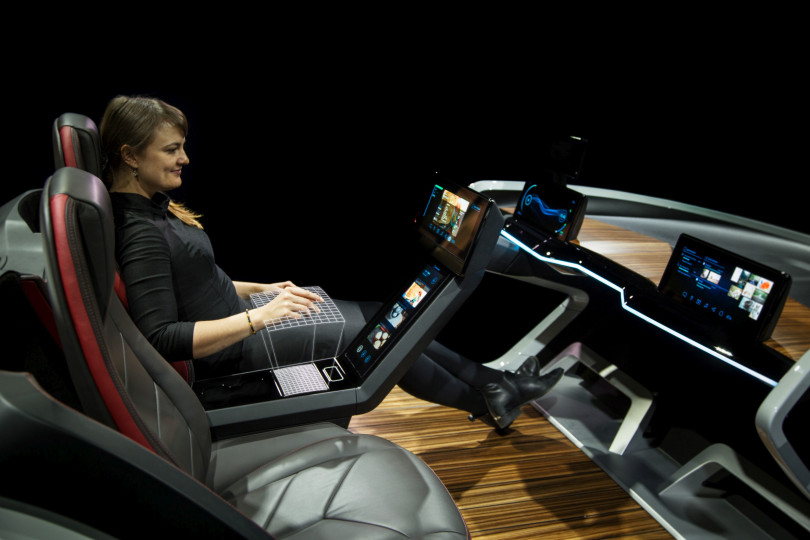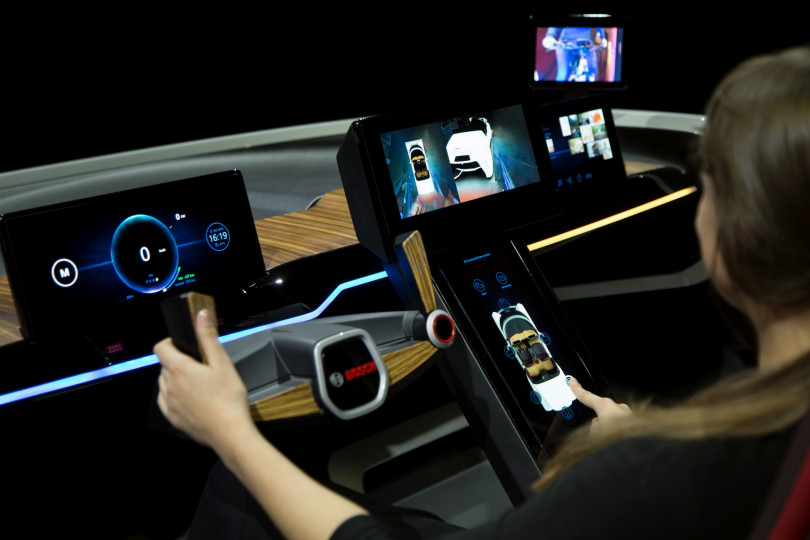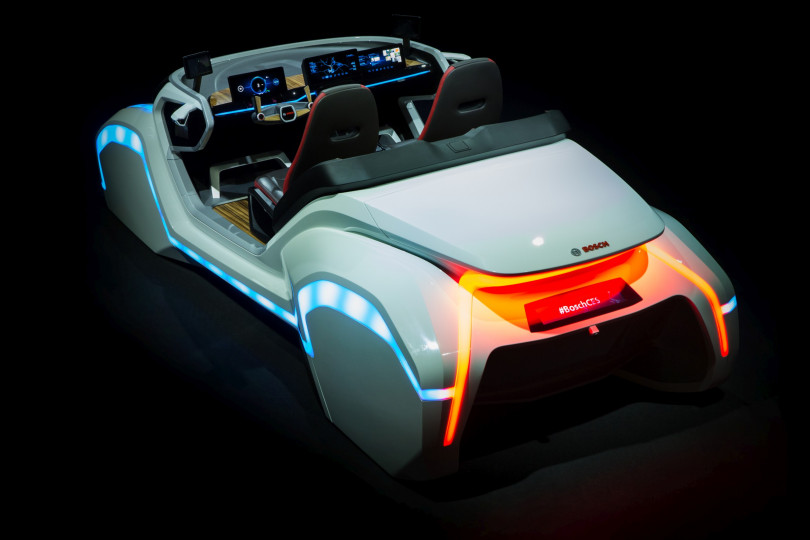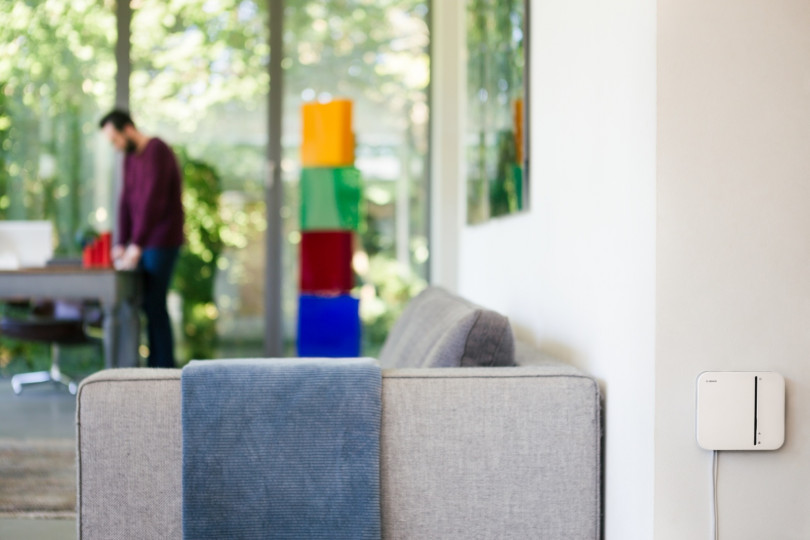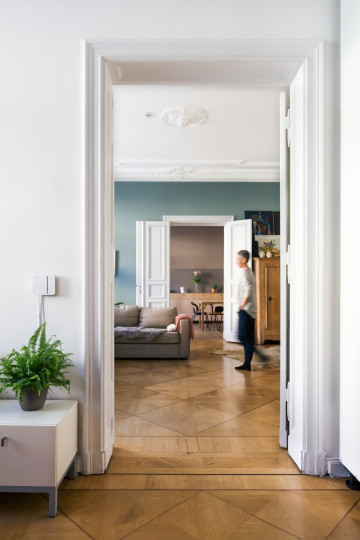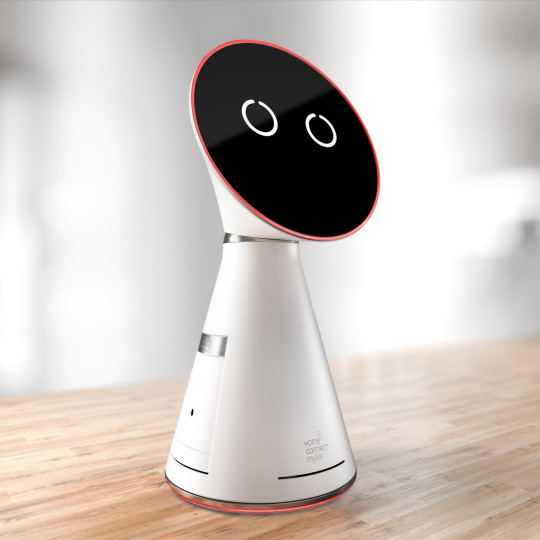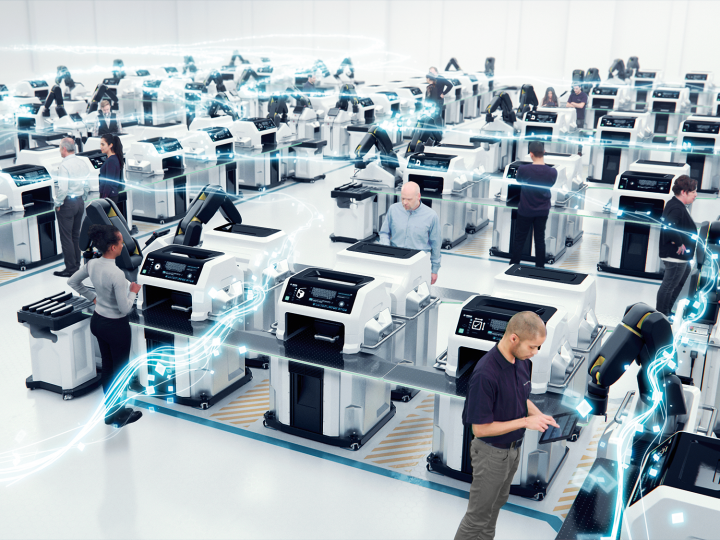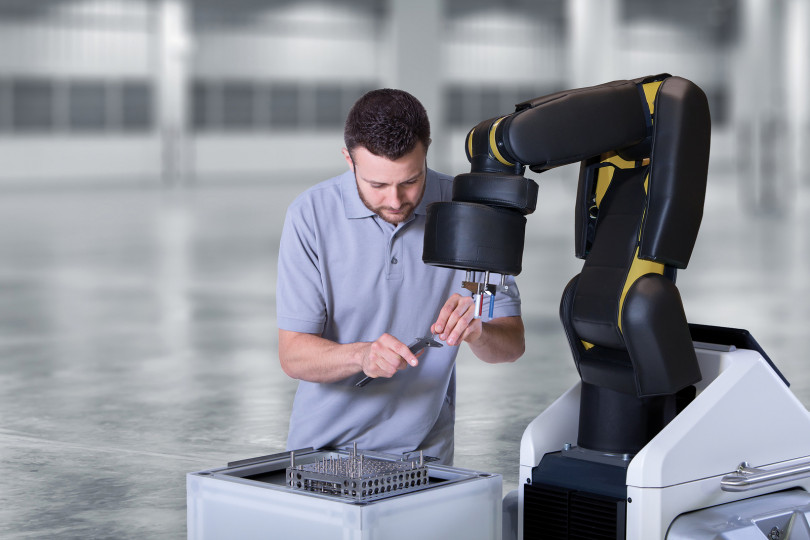Las Vegas – Imagine you had a personal companion or guardian angel in every sphere of life. Someone who always knew whether you left the oven on – even if you were already on your way somewhere with the car, or even sitting at the office. At CES® 2017, Bosch is showing that connected solutions have already made this vision a reality. “Personalization is a growing trend in the realm of connectivity, and we are driving this trend forward,” said Dr. Werner Struth, member of the Bosch board of management, during the company’s press conference at CES 2017 in Las Vegas. At the world’s biggest consumer electronics trade show, the global supplier of technology and services is focusing on the following domains: smart homes, smart cities, connected mobility and Industry 4.0.
With the personalization of products and services, connectivity is now reaching the next phase of development: “Devices are becoming intelligent companions that make everyday life easier and safer at home, in the city, in the car and at work.” According to a recent study, more than 60 percent of respondents believe that intelligent assistants make sense. “Our set-up means we are well-prepared to take on a leading role in the personalization of connectivity,” said Struth. Very few industrial enterprises have comparable expertise at all three levels of the internet of things: Bosch brings extensive experience to the table with sensor technology, software and services, and also has its own IoT cloud. This makes the company a one-stop shop for the Internet of Things (IoT).
Moreover, Bosch has a goal of networking 100 percent of its electronic products and offering a connected service package for each product. The customer is the main focus here: “Clever additional functions and services must be tailored to our customers’ individual needs and usage habits”, said Struth. Thanks to the personalization of products and solutions through connectivity, this is increasingly possible.
The car is becoming a personal assistant
By 2022, the global market for connected mobility is set to grow by almost 25 percent per year. In just a few years, cars will become an active part of the IoT and will be able to communicate with other modes of transportation as well as with the smart home. At CES® 2017, Bosch is presenting a new concept car that shows how different spheres of life will be seamlessly interconnected in the future. “The vehicle will play a central role in cross-domain communication,” Struth said. Personalized communication between the car and its driver will also be expanded: New functions are connecting the car to its surroundings, the smart home and the repair shop. These functions will make highly automated driving possible. “Bosch is working diligently to make sure that mobility and smart services become one,” said Struth. “If the car is connected to the smart home or the smart city via the cloud, there will be measurable benefits. Connectivity is turning the car into an assistant on four wheels.”
What is more, the Bosch concept car comprises a broad range of innovative technologies: The moment the driver sits down, facial recognition technology sets the steering wheel, mirrors, interior temperature, and radio station according to the driver’s individual preferences. The system is controlled via a haptic touch display and an innovative gesture control system, both of which give tangible feedback when they are used. If the car is highly automated, cloud-based services enable videoconferences, or allow drivers and passengers to plan their weekend shopping trips or watch the latest videos. By 2025, highly automated driving will save the average frequent driver in the United States, Germany or China almost 100 hours per year, according to a study that Bosch recently commissioned. In purely technical terms, communication control units such as the Bosch Central Gateway make connectivity possible. The Gateway is a hub that ensures communication with all domains across all data buses. ETAS and ESCRYPT, which are both part of the Bosch Group, provide the transmission and encryption solutions. These ensure that cloud-based vehicle software updates can be carried out securely throughout the vehicle’s service life. If the car communicates with its surroundings, security updates must be carried out on a regular basis.
When communicating with its surroundings, the car also takes on important tasks in the connected city. For instance, with community-based parking, the car is becoming a parking spot locator. When driving along the street, the car detects gaps between parked cars. A cloud-based service that uses this data to create a real-time parking map saves the driver a great deal of time and money, and also helps reduce stress.
Connected helpers are taking on additional functions at home
In the walls of their own homes, too, users can rely on the internet of things for a broad range of intelligent helpers that make life easier and safer. Some products now even perform several functions at once: for example, the smoke detector also monitors air quality and its siren can be used to scare off unwanted guests.
The Bosch smart home system makes it possible to control connected devices at home via a single app. With the scenario manager, the smart house is becoming even more intuitive. When you leave the house, there is no longer any need to check whether you have turned off the heat, electrical devices or the lights. This makes life safer and more comfortable. By activating scenarios with the tap of a finger, the scenario manager performs such routine tasks through the Bosch smart home app.
Products designed as intelligent assistants from the start
With the personalization of connected solutions, technologies and services are not only tailored to individual needs; Bosch is also developing products that are specifically designed to be personal assistants. These can also communicate with their users. One example is “My kitchen elf” – or Mykie, for short. With this concept, BSH Hausgeräte GmbH has stepped into the world of personal assistants. Mykie is operated with the user’s voice. It listens to users, answers their questions, and helps with a number of daily chores. For instance, Mykie immediately knows what is in the refrigerator, how long the cake should stay in the oven, or whether the sun will be shining in the afternoon. With the connected Mykie, the user can control the entire range of Home Connect household appliances. Mykie can also bring its users together virtually – so they can cook together or exchange recipe ideas, for instance.
World premiere: Bosch start-up presents new home robot
Mayfield Robotics, the start-up that Robert Bosch Start-up GmbH (BOSP) supports, focuses on the home robot business. The company specializes in the development of home robots. At the CES® 2017, it is presenting Kuri, its first commercial robot, which is scheduled to be launched in the United States at the end of 2017. The robot is about 50 centimeters tall and is equipped with a number of sensors. It can move about the room, all the while taking note of the shortest possible routes. Kuri interacts with residents and is thus part of the family. For instance, Kuri can play music or inform parents who are stuck in traffic that their children have come home from school. More than 30 robotics engineers and designers work at the start-up’s headquarters in Redwood City, California. They benefit especially from the creative freedom and inspiring Silicon Valley start-up culture. “For Bosch, targeted investments in creative start-ups are important, as they allow us to respond to new trends at an early stage. In so doing, we are securing our access to disruptive industry developments,” said Struth.
Assistants are also on hand in networked manufacturing
Assistants also play a significant role in networked manufacturing. For instance, the APAS robot makes flexible and efficient manufacturing possible. It takes on strenuous, dangerous and monotonous tasks and is designed to cooperate closely with human beings. Thanks to its sensor skin, the automatic production assistant detects when a person gets too close and then shuts down immediately.
Bosch designed the APAS specifically with its use in Industry 4.0 – or Connected Industry – in mind. As a lead provider and lead user of Industry 4.0 technologies, Bosch is set up like almost no other company.
With its new IoT Gateway solution, the company can also offer the benefits of connected industry to operators of older machines. “Many machines are not connected. Among other things, they are lacking the necessary sensors, software or connection to the company’s IT systems – which are the prerequisites of networked production,” said Struth. “In global terms, the market for retrofit solutions such as the Bosch IoT gateway is worth billions.” The IoT Gateway combines sensor technology, software and an IoT-enabled industrial control system. This makes it possible to monitor the status of machines. According to Struth, industry needs connected machines in order to secure lasting success. This is precisely what the Bosch IoT gateway offers – a quick and flexible solution.
Bosch’s view on the Internet of Things
“We believe that connectivity is more than just technology. It’s part of our lives. It improves mobility, shapes the cities of the future, and makes homes smarter, industry connected, and healthcare more efficient. In every sphere, Bosch is working toward a connected world. A world that opens up possibilities no one could ever have imagined. So let’s go beyond building connected devices. Let’s build connections with real benefit – around the world, across the web, within the cloud. Let’s connect founders with funders, dreamers with doers, parts with the whole. Let’s link the virtual and the physical and leave a lasting legacy in our world. Let´s be simply.connected“
Mónika Hack
+36 70 510 5516
EXPERIENCE BOSCH AT THE CES 2017 in Las Vegas, Nevada, USA: At the CES 2017, Bosch is showing how the Internet of Things is getting personal – how things can be turned into partners. Connected technologies enable personal assistance in all areas of life: they improve mobility, shape the cities of the future, make the home intelligent, health care technology more efficient, and they make work easier. For the fifth time at CES, Bosch is presenting an expanded portfolio of "simply.connected" networked solutions.
BOSCH PRESS CONFERENCE: Wednesday, January 4, 2017, 09:00 am to 10:00 am (local time): with Dr. Werner Struth, member of the Bosch board of management at Mandalay Bay Hotel, South Convention Center, Ball Rooms BCD
FOLLOW the Bosch CES 2017 Highlights on Twitter: #BoschCES
BOSCH BOOTH: Thursday to Sunday, January 5-8, 2017 at Central Hall, booth #14128
PANELS WITH BOSCH ESPERTS:
Thursday, January 5, 2017; 11:30 am to 12:30 pm (local time): Conference track “MEMS & Sensors: Personalizing Consumer Technology”, Session “Where are Consumer Electronics Taking the Sensors Industry?” with Dr. Stefan Finkbeiner, CEO and General Manager, Bosch Sensortec; Venetian, Level 4, Marcello 4501Friday, January 6, 15:30 pm to 4:30 pm (local time): Conference track “Vehicle Technology”; Session “Redefining the Automotive Infotainment Experience” with Mr. Torsten Mlasko, Las Vegas Convention Center N258
The Bosch Group is a leading global supplier of technology and services. It employs roughly 375,000 associates worldwide (as of December 31, 2015). The company generated sales of 70.6 billion euros in 2015. Its operations are divided into four business sectors: Mobility Solutions, Industrial Technology, Consumer Goods, and Energy and Building Technology. The Bosch Group comprises Robert Bosch GmbH and its roughly 440 subsidiaries and regional companies in some 60 countries. Including sales and service partners, Bosch’s global manufacturing and sales network covers some 150 countries. The basis for the company’s future growth is its innovative strength. Bosch employs 55,800 associates in research and development at 118 locations across the globe. The Bosch Group’s strategic objective is to deliver innovations for a connected life. Bosch improves quality of life worldwide with products and services that are innovative and spark enthusiasm. In short, Bosch creates technology that is “Invented for life.”
The company was set up in Stuttgart in 1886 by Robert Bosch (1861-1942) as “Workshop for Precision Mechanics and Electrical Engineering.” The special ownership structure of Robert Bosch GmbH guarantees the entrepreneurial freedom of the Bosch Group, making it possible for the company to plan over the long term and to undertake significant up-front investments in the safeguarding of its future. Ninety-two percent of the share capital of Robert Bosch GmbH is held by Robert Bosch Stiftung GmbH, a charitable foundation. The majority of voting rights are held by Robert Bosch Industrietreuhand KG, an industrial trust. The entrepreneurial ownership functions are carried out by the trust. The remaining shares are held by the Bosch family and by Robert Bosch GmbH.
Additional information is available online at www.bosch.hu

